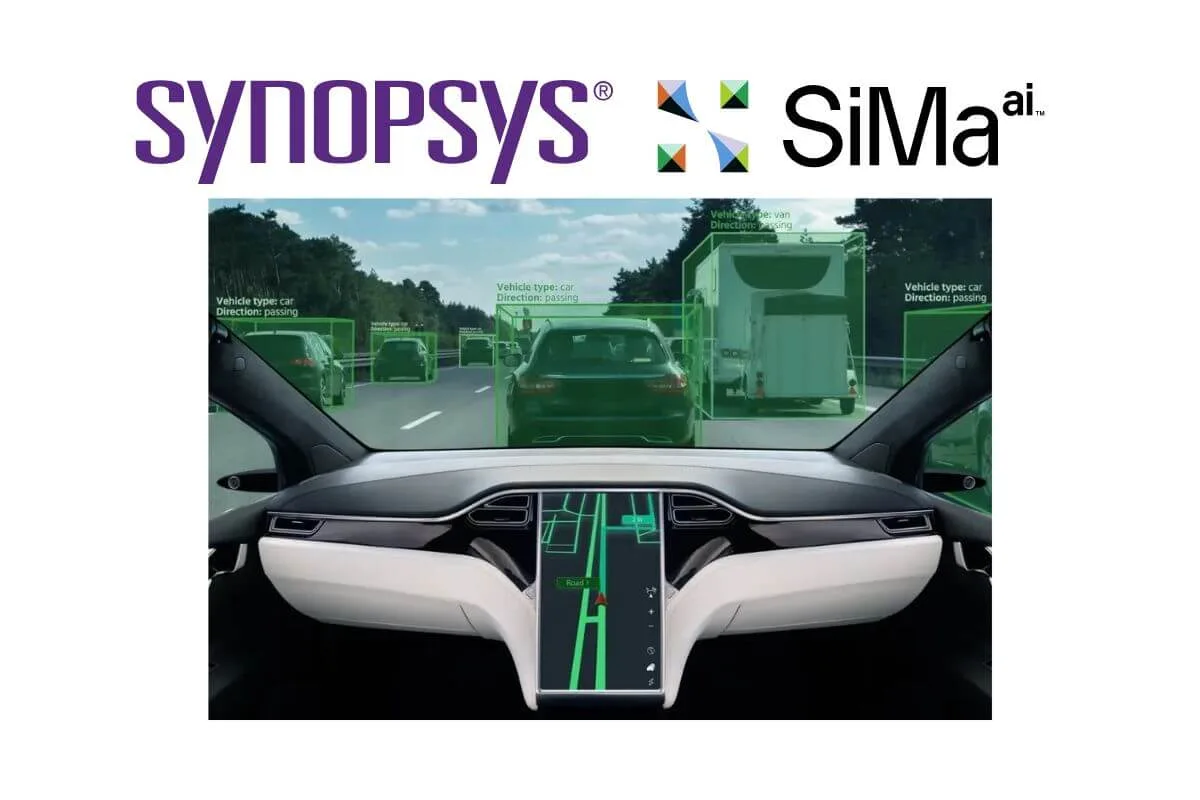
Synopsys and SiMa.ai have joined forces to create a comprehensive solution designed to accelerate the development of workload-specific silicon and software needed to power artificial intelligence (AI)-enabled features in next-generation automobiles. This solution will combine Synopsys' electronic design automation (EDA), automotive-grade IP, and hardware verification tools with SiMa.ai's machine learning accelerator (MLA) IP and ML software stack application development environment for maximum customisation of IP, subsystems, chiplets, and SoCs.
Also Read: Olympian Motors Expands Collaboration with Nvidia to Advance AI-Powered EV Platform
Targeting Key Automotive Applications
The companies noted that "Advanced Driver Assistance Systems (ADAS) and In-vehicle Infotainment (IVI) are emerging as key differentiators for automakers with a tremendous diversity in applications." The solution targets key automotive applications such as ADAS and IVI, which are reliant on artificial intelligence at the edge to deliver real-time, multi-modal in-car experiences. However, current software-defined vehicle (SDV) architectures are not equipped to support the diversity of applications and the required compute, performance, and reliability.
The companies believe that Automakers need AI-ready, workload-verified, power-efficient software architectures to compete in this new environment, along with hardware-software co-design solutions, from silicon–to–systems, to reduce development costs and de-risk start-of-production timelines.
Also Read: Qualcomm Partners with Google to Transform Automotive Cockpits with Generative AI
Synopsys and SiMa.ai Integrated Solution
Synopsys, working with more than 50 OEMs and Tier 1 suppliers, is utilising Synopsys virtual prototyping technologies and over 1,000 virtual models developed from SoC IP to board-level ICs and ASICs. SiMa.ai is a software-centric company specialising in developing high-performance, power-efficient machine learning system-on-chip (MLSoC) solutions for the embedded edge, according to the official release.
The integrated Synopsys and SiMa.ai solution will be designed to enable:
- Early Architecture Exploration: Assists automotive engineers in optimising performance, power, and software requirements for custom SoC development.
- Shift-Left Software Development: Streamlines hardware-software integration with tools like virtual prototyping and emulation to speed up time to market.
- Cost-effective and differentiated in-vehicle experiences: Provides silicon-proven building blocks for high-performance automotive ML SoCs, reducing development costs.
- Continuous upgradeability of automotive edge AI solutions: Supports continuous upgrades and over-the-air updates to keep pace with evolving AI demands.
Also Read: IBM Study Predicts Vehicles to Be Software-Defined and AI-Powered by 2035
Smarter and Safer Vehicles Through AI Innovation
"Our collaboration with SiMa.ai will provide automotive companies a significant step forward in modernising their hardware/software co-design processes to meet demand for advanced, in-car experiences that are increasingly costly and complex to deliver," said Ravi Subramanian, head of the Synopsys Product Management and Markets Group. "Our leadership in architecture exploration, IP, and hardware-assisted verification, combined with SiMa.ai's innovative performance and power-optimized ML capabilities, will enable customers to differentiate while continuing to meet stringent cost considerations and industry standards."
"Collaborating closely with Synopsys allows us to provide automotive manufacturers with complete, optimized solutions that accelerate their development cycles," said Krishna Rangasayee, Founder and CEO, SiMa.ai. "The SiMa.ai MLSoC platform was designed for best possible performance at lowest power consumption across a diverse set of applications—that was the missing piece in the puzzle to make future cars so much smarter and safer than what we have today. When combined with Synopsys' industry-leading IP and software, we will deliver a powerful foundation for innovation across auto OEMs in autonomous driving and in-vehicle experiences."















